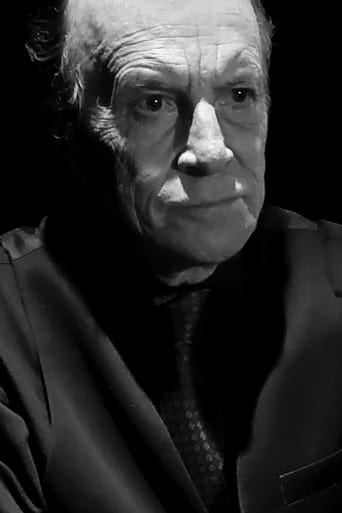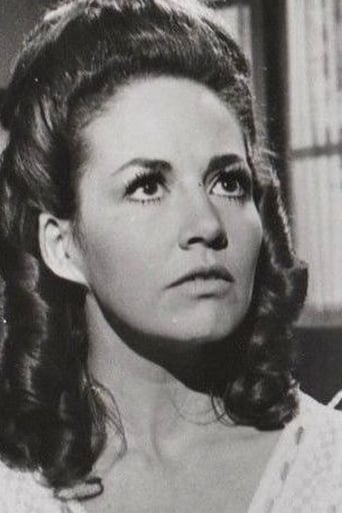Unlimitedia
Sick Product of a Sick System
SpuffyWeb
Sadly Over-hyped
SoTrumpBelieve
Must See Movie...
Deanna
There are moments in this movie where the great movie it could've been peek out... They're fleeting, here, but they're worth savoring, and they happen often enough to make it worth your while.
lavatch
"Herod's Law" may be succinctly described as the "smoking pistola." The pistol wielded by the protagonist named Vargas enables his improbable rise to power in a corrupt Mexican system.Set around the period of 1940s, "Herod's Law" is a vintage satire of small town corruption. It also draws upon Shakespeare's "Macbeth" for a character driven by ambition to gain power and fortune, seizing on every opportunity for kickbacks in his position of mayor of the village.Egged on by his equally motivated wife, Vargas takes the payoffs from the locals, including a local brothel and the village priest. But he is on a collision course with doom that has been experienced by his equally venal predecessors.In this wildly satiric and dark comedy, things come to a head for Vargas when his political party falls, and his own wickedness is discovered. The culmination is the image of his crucifixion on the large electrical pole that embodied his slogans of "Modernity" and "Social Justice." But at his darkest moment, Vargas experiences a resurrection, somehow saved by divine intervention. The last we see of Vargas is him recounting a speech in Congress in which he has by now moved up the political ladder and even offers a justification for his bloody deeds.The film is well-scripted, well-photographed, and well-performed as a lively social satire. The acerbic wit is not merely directed at Mexico, but has a universal resonance where human nature brings out the worst in people.
mendoj2
Within the film, La Ley De Herodes we can observe the intention of the director to address the several issues involving the Mexican government. While watching the film, what appears to be another simple political satire, rapidly becomes a provocative denunciation of the Partido Revolucionario Institucional (PRI). Starting by the utilization of sepia tones we can see the satirical undertone of the worn-out" gray" times under the rule of the PRI. This is appears to be a direct criticism of the homogeny of the political party that consistently ruled Mexico for over 70 years. Throughout the film we are exposed to the diverse corruption of the system and its impact on the inhabitants of the country (specifically inhabitants of San Pedro De Los Saguaros). A clear example of the corruptive disorder would be the unstable political government in San Pedro De los Saguaros. Every mayor (including Juan Vargas) was sentenced (lynched and beaten to death) by the inhabitants. This stated that the chaos started from the top of the ladder and quickly escalated down. I believe the director provided this message to state that the country is an important participant in the politics of the country. By having the social chaos we can see that the future lies in the hands of the people. This provided an insight that although the message of the director was intended for a national audience, it did not exclude global viewers. As part of the message, he repeatedly emphasized the critical condition by the inhabitants of the rural towns, which after being seduced by lies and promises condone to having such rulers. This subtly criticizes the national audience by the end of the film where we see Juan Vargas (who becomes president) being applauded for his emotional speech full of hypocritical national pride aimed to his "fellow" citizens. One of the noteworthy events which might have influenced the director Luis Estrada, could have been the national elections of 2000 which incremented his desire to portray the longed for change in Mexico.
fiodorovich
If you want to understand La Ley De Herodes you need to be aware of what the PRI was really on Mexico. First of all it began as a Party that unified the state after our famous and violent revolution the PRI unified Mexico, it started as a good cause but with time it degraded and became what we could see in the movie. At that time, I mean 1940 the Miguel Aleman period there wasn't a Party or force that opposite the PRI, because they control everyone, but they control everyone because they on their side the workers and peasants, because they supported them on their works allowing them to have their syndicates and supporting their demands. Now thats why I think we cant just go like "yes I think that La Ley De Herodes reflects perfectly how the PRI was" I repeat we have to understand the historical contest so that we can make an objective opinion.
mazinger4
A movie where the main character can be a law abiding citizen one minute and a very corrupt politician the next.I was very impressed with the main character's versatile personality. A strugler that could mine gold from a barren place.Even when the political view is the main point in the movie, there are other factors that dominate the events. Against many adversities this industrious character will find a way. Even if it means breaking his own promises. At the end the movie teach that survival is the esential part of life. Even for politicians, corrupts or not corrupts.




